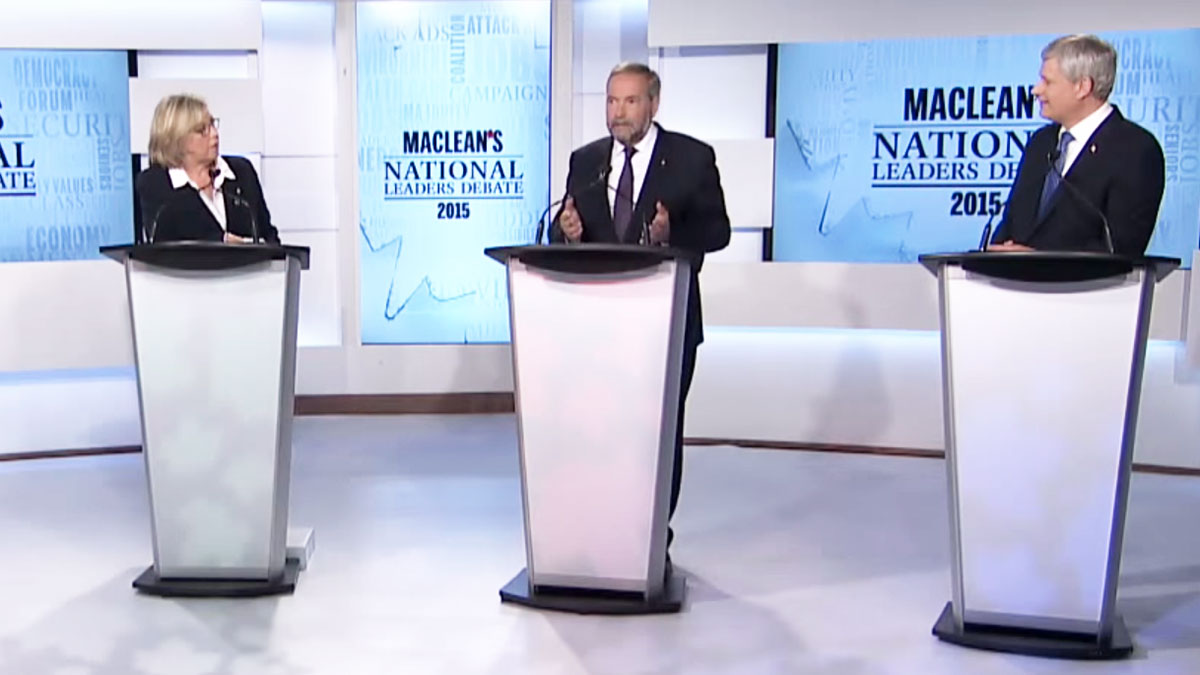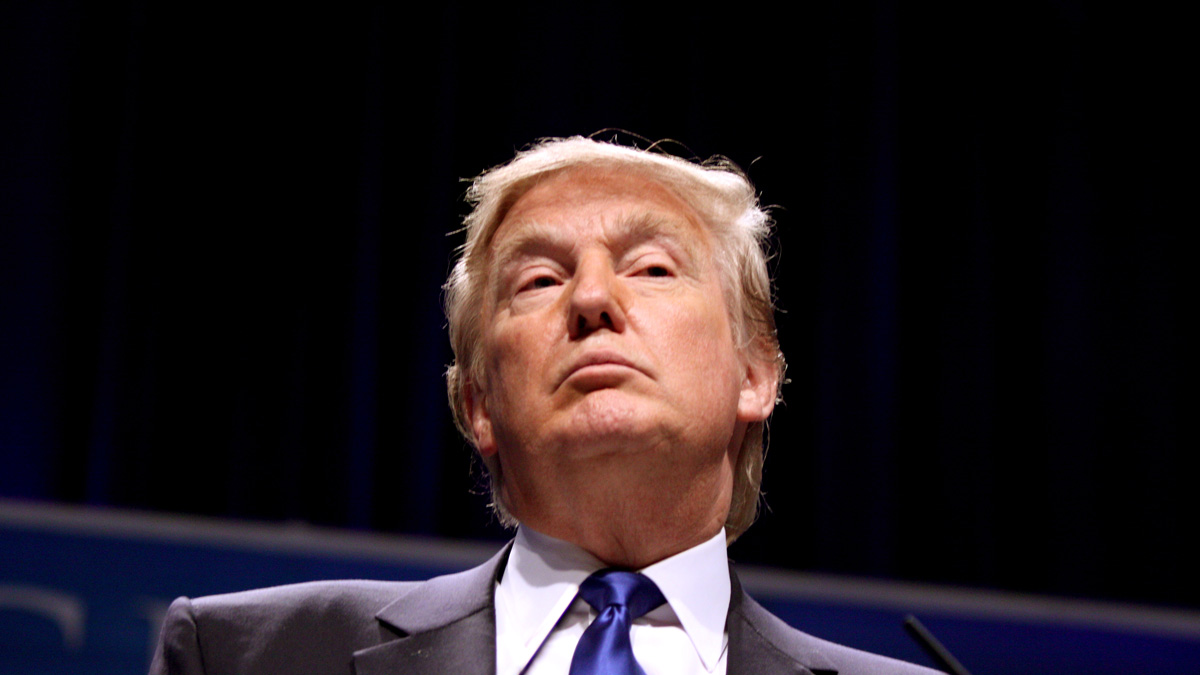 Screenshot
ScreenshotIt’s been almost a week since the Maclean’s national leaders debate and the general consensus among commentators is that there was no clear winner or loser. Everyone gave a strong performance and did a good job distinguishing their stances. For now, this may be fine for each of them. But as October approaches, voters who are tired of nine years of Stephen Harper will have to decide who to replace him with, and the First-Past-the-Post system is going to make that difficult.
Since their defeat back in 2011, the Liberals have been attempting to rebrand themselves from a party that seemed irrelevant in our political landscape to a serious contender. Under Justin Trudeau’s leadership, the Liberals seem to have done a good job at reclaiming lost ground. It probably helps that expectations are quite low for Mr. Trudeau, if the jokes about how he wouldn’t have his pants on during the debate are any indication.
Voters who lean towards the right will probably vote Conservative. But given the Liberals’ resurgence, will left-leaning voters go for them or the NDP? The debate gives us an unclear answer as both Mulcair and Trudeau had strong and weak moments. During a break from Harper-bashing, they jabbed each other. Trudeau tried to represent Mulcair as an extremist trying to pander to people who hate corporations and willing to gamble with national unity by appealing to Quebec separatists. Mulcair, who boasted of his time in provincial politics, took aim at the Liberal leader’s lack of experience and characterized Trudeau’s policies on the economy and Bill C-51 as being too similar to Harper.
While they both effectively voiced their platforms, Mulcair may have been bogged down by high expectations as some were hoping to see the aggressive Leader of the Opposition seen in Question Period. Viewers were instead treated to a Mulcair who was trying to be more amiable, which worked somewhat to his advantage. On the other hand, low expectations of Trudeau may have made him seem more successful that he actually was.
Then we have the First-Past-the-Post system. Vote splitting would be less of a concern under a system of proportional representation where voters could vote for the party of their preference and a regional representative. Meanwhile, seats in the legislature could be arranged to more accurately represent the popular vote. FPTP instead greatly distorts seat allocation as voters can only vote for candidates running in their riding, resulting in a composition of MPs that bears little resemblance to the popular vote. FPTP is how the Conservatives can get 51.6% of the seats in the House of Commons with only 39.6% of the vote. If Trudeau is to boost the number of Liberal MPs in the House of Commons, it could be the NDP paying for it.
Now some might look at this and repeat what Elisabeth May said, that the issue is vote abandoning as opposed to vote splitting and that voter engagement is somehow the solution. But this ignores the systematic problem of FPTP. Voter engagement is nice to have, but left-wing voters still have to pick who to vote for, and that’s not going to be easy.
With two months until the election, it’s hard to tell how the fight for the left vote will end. Could either of these parties be inadvertently helping the Conservatives win this election? Or will something else intervene? If the debate is any indication, it will be a tight contest in an already high-stakes election. And since this is an extra-long campaign, we will inevitably see this question arise again. However, if Trudeau becomes prime minister and stays true to his word that this election will be the last one to be run under the FPTP system, then vote splitting may no longer be a worry.




